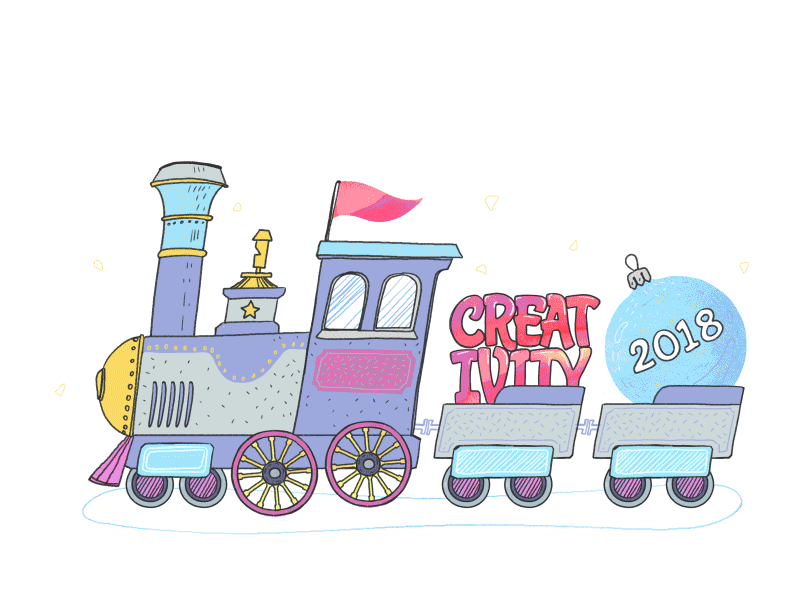Terms of Reference
Non-key Short-Term Junior Expert: Facilitator Georgian Culture 2025
|
The Project: |
EU-Eastern Partnership Culture Programme II |
|
REF: |
EuropeAid/135685/DH/SER/MULTI |
|
Financing Institution: |
European Union |
|
Budget Line/ Expert Category: |
Non-Key Short Term Experts |
|
Beneficiary countries |
The Eastern Partnership countries (Armenia, Azerbaijan, Belarus, Georgia, Republic of Moldova and Ukraine) |
|
Client |
European Union, DG NEAR C/2, Regional Programmes Neighbourhood East |
1. Description of the Assignment
Title: Facilitator Georgian Culture 2025
Number of required experts: Junior (1)
Duration of the assignment: Up to 15 Working Days
Period of the assignment: 1st February 2016 – 20th February 2016
Place of assignment: Tbilisi
Junior experts: Field (15 days)
2. Background and Scope of Work
European Union-Eastern Partnership Culture and Creativity Programme 2015-2018 aims at further strengthening cultural policies and to strengthen the capacities of the culture sector and the cultural operators in the EaP countries. It also aims to increase the links between public institutions and private actors and to include civil society in the decision making process, thus enhancing the role of culture as a driving-force for reform, promotion of inter-cultural dialogue and social cohesion.
The Programme consists of four main components:
- cultural indicators and practical research including strengthening national capacities in evidence-based policy
- capacity-building in support of modernisation and reform in the cultural sector
- development of international collaboration opportunities
- communicating culture
Culture 2025
This document and consultation process is the very first time that the Ministry of Culture has started elaboration of the long-term policy/strategy document. This is the very first time that any Ministry has launched an open, inclusive process by engaging every interested stakeholder and wider audience. The ultimate goal is to reach and engage as many individuals and institutions as possible. The Ministry launched this process with the help of the Eastern Partnership Programme 1, and has continued the work with the support of the Programme’s phase 2.
Programme Management
The Programme is administered by a consortium led by the British Council with its partners: The Soros Foundation-Moldova, The National Centre for Culture of Poland, and the Goethe Institut. A Technical Advisory Team based in Kyiv runs the day-to-day management of the Programme with a team of six Country Coordinators.
3. Assignment Objectives
This work comes under Activity 1.3.1 Support for Policy Development Initiatives under Component 1 of the Programme.
The indicator of achievement of this task is:
New policy or positive changes and development of existing policy that are integrated into wider national, regional and municipal policies.
4. Assignment Scope
4.1. Scope
- The expert will devise and run up to 14 x half-day consultation sessions in Tbilisi.
- The expert will develop materials and work with an international trainer to create and run the session.
- The expert will provide a local context and will partner with the international trainer at the session.
- The expert will facilitate a discussion among 25 participants on the Culture 2025 draft document.
- The expert will ensure that the participants work constructively and are clear about their task and the purpose of the session.
- The expert will ensure that all of the key comments are recorded by the Rapporteur.
- The expert will ensure that each session nominates one person to represent the group at the final session with the ministry on 17th February.
- The expert will resolve any unclear elements of the document with the Ministry of Culture.
- The expert will distribute and gather feedback forms from participants and hand them to the Georgian country coordinator for analysis.
- The expert will complete a feedback form on each session.
- The expert will update the international trainer from the Programme Team daily on progress.
- The expert will attend a lesson-learning session at the end of the last event and share knowledge from the process.
5. Methodology, Approach and Main Deliverables
The methodology will follow the process of the first round of consultations. Changes will be discussed and agreed with the international consultant.
The approach will be to provide clear, concise and simple information that will provide context to and manage expectations of the participants in each session.
The main deliverables is a summary document that will be presented to the ministry and representatives of each session on the 17th February in Tbilisi. The rapporteur is responsible for this work but the facilitator will be required to provide detail and information from the sessions.
6. Reporting Requirements
To write a one-page summary of the main tangible outcomes of each session, and provide all contacts to the Programme office in Kyiv.
7. Expert Profile
European Union-Eastern Partnership Culture Programme 2015-2018 does not discriminate on the basis of age, race, colour, sex, religion, sexual orientation, or disability.
Applicants must meet the following criteria:
Qualifications and Skills
We are seeking to recruit 1 local consultant with the following experience and skills:
-
A university degree in cultural management, the arts, social sciences, development or related subject
-
At least three years professional experience in the fields of cultural management, preferably in middle-income countries.
-
Experience of being a discussion and workshop facilitator.
-
Excellent interpersonal and consensus building skills.
-
Ability to communicate in Georgian and/or English.
-
Computer skills in Word and Power Point.
8. The Indicative Activities and Timetable
Senior Expert
|
Activity |
Number of Days |
Expected Timeline * |
|
2 Days |
1-2 February 2016 |
|
7 Days |
3- 11 February 2016 |
|
Support the writing/ editing process |
4 Days |
12-16 February 2016 |
|
Prepare and attend the feedback presentation to the ministry and groups’ representatives |
1 Day |
17 February 2016 |
|
Prepare comments for and attend lesson learning session |
1 Day |
March 2016 |
|
Total |
15 Days |
|
9. Administrative Aspects
9.1 Reporting Requirements
To write a one-page summary of the main tangible outcomes of each session and provide all contacts to the Programme office in Kyiv.
9.1. Conflicts of Interest
Please let Programme staff know of potential conflicts of interest in your covering letter.
9.2 Fees
Please indicate fee expectations in your cover letter. Fees should be inclusive of all tax and social contributions. This Programme is VAT exempt.
Invoicing
An invoice (using the format in annex 4 to the contract) and a timesheet (Annex 8 of the contract) should be submitted to the British Council, for approval and payment by 25th of the month following the end of the assignment.
Financial record keeping
This work is part of the EU Programme. This type of Programme is based on payment of verifiable, eligible expenditure. The Expert must ensure that all expenses claimed and receipts/documentation is in-line with the Council’s requirements to enable it to fulfil the requirements of the EU as set out in annex 3 to the Consultant’s contract.
10. Application Procedure
Applications (EU format CV and application letter, both in English) need to be submitted by e-mail to Victoria Dudko Victoria.Dudko@britishcouncil.org.ua not later than 18:00 hrs (EEST), 28th January 2016, titled:
Application for the position Non-key Short-Term Junior Expert: Facilitator Georgia Culture 2025 Draft Document
The EU CV template is found here:
https://europass.cedefop.europa.eu/en/documents/curriculum-vitae/templates-instructions.iehtml
References must be available on request. Only candidates with a correct CV will receive a confirmation on receipt of their application. Only short-listed candidates will be contacted.
The Project is an equal opportunity employer that encourages applications from women and minorities.
All applications will be considered strictly confidential.
The one-page cover letter should provide concrete examples of how your experience and skills meet the assignment.
The advertised post is not available to civil servants or other officials of the public administration in the beneficiary countries.
For more information, please contact Victoria Dudko, Victoria.Dudko@britishcouncil.org.ua Tel/ +380 44 490 5600
11. Application Evaluation Criteria
Submissions will be assessed in a standardised manner. We expect to issue a response within one week. Only shortlisted consultants will be contacted. The programme reserves the right to reject any or all the proposals without assigning any reason thereof.
Annex 1.
Background
The Programme runs for 36 months from 1st February 2015 to 31st January 2018.
Origin of the programme
In the Eastern Partnership countries, public policies have had a tendency to define culture narrowly in terms of heritage, both 19th century traditional and Soviet classical, then “high” culture and ethnic folk culture. This problem of an un-dynamic, narrow definition of culture can be a major stumbling block to cultural policy development and economic growth. It can also be an important limit to the modernisation and development of the agendas that envisage the contribution of culture to other important social spheres (e.g. culture and employment, culture and social cohesion, culture and "well-being", etc.), which are becoming an integrated part of economic and social policy and planning in most European countries. The challenge for EaP countries is to integrate culture into all spheres of society and to pay systematic attention to the independent, private and commercial cultural sectors.
The Eastern Partnership countries differ from many of the EU Member States in various aspects for what concerns cultural policies. An important issue to consider is that the private and the independent cultural sectors are very weak. As a result of this, the cultural sphere is both relatively vulnerable and underdeveloped with a disproportionate role being played by Ministries of Culture. Therefore the areas in which the ministries choose to operate, how they operate on those areas and the quality of their performance, are all of critical importance.
Evolution of the context
In this Programme, culture and creative sectors are understood through a broad approach and in line with the working definition provided in the study “Economy of Culture in Europe” and the European Commission's Green Paper entitled “Unlocking the potential of cultural and creative industries”. In this context, culture encompasses expressions, activities, goods and services in relation to:
-
Core arts areas: performing arts, visual arts, cultural and architectural heritage and literature;
-
Cultural industries: film, DVD and video, television and radio, video games, new media, music, books and press;
-
Creative industries: those industries, which use culture as an input but whose outputs are mainly functional, including architecture, advertising, design and fashion.
Cultural operators are defined as all types of organisations and individuals working in the field of culture.




